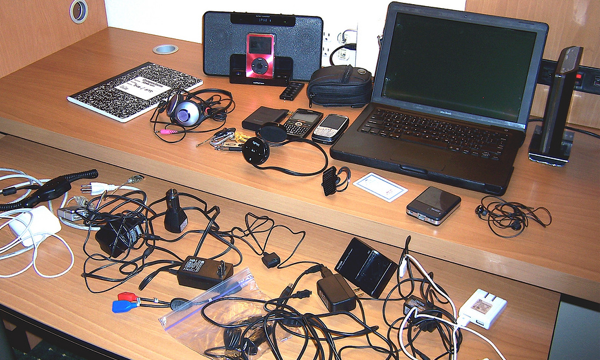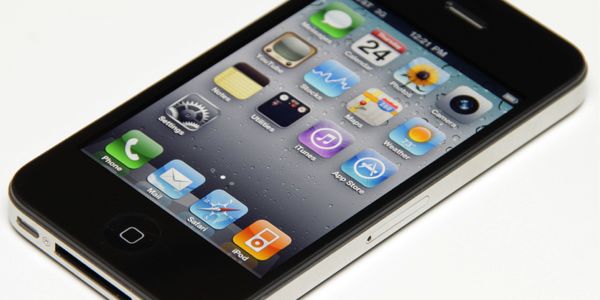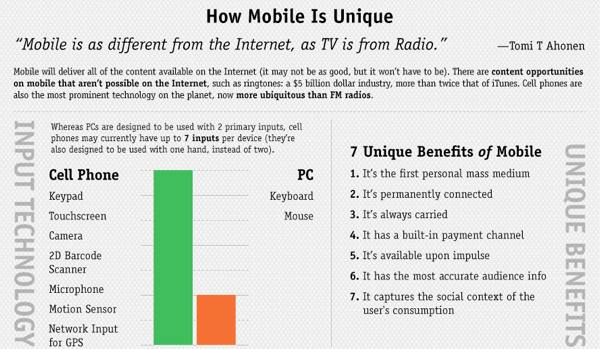Forget about HDTVs, PSPs, Macbooks, iPods, radios, cameras, camcorders, books, maps, and GPSs. We don’t need ‘em! We have everything our technology-loving hearts could ever desire in the palm of our hand — many call them smart phones, but they are far more than that. They are the makings of a technological revolution.
However, it wasn’t always this way. For far too long we were constrained with devices that did one single thing: telephones ensured you would always stay connected with annoying family members, MP3 players enabled you to jam to Justin Timberlake, GPSs managed to get you even more lost, and so on. These devices, in general, performed remarkably well at what they were created to do, but we only have so many pockets to fill.
What we needed was a company to take the best of all these devices and combine it all into a single solid product. It would do everything that we needed, removing the necessity to carry around all of these devices, which would restore harmony to our pockets and electrical sockets. We could always dream of its coming. Yet no one could have possibly imagined just how big of an impact this would have had on the entire tech industry.

iPhone
January 9, 2007 is the day when Steve Jobs and Apple changed the tech industry forever. It is the day that, at the Worldwide Developer Conference, his company revealed the iPhone.
While Apple didn’t invent the idea of an application-supported smart phone — Blackberry and Windows Mobile had done this long before Apple — they executed it better than the rest of the competition. The iPhone was the first device that provided an amazing user experience and a rich marketplace for developers to create and distribute applications. The sexy design certainly didn’t hurt sales either.
With the help of the iTunes marketplace and the App Store, the iPhone had immediate support from developers who were hoping to cash in on this new platform, and many did just that. Eventually, the platform grew, and the variety of applications that became available to the platform exploded, which enabled entirely new businesses to be created around the idea that a smart phone would be the primary platform.

So, with the success of the iPhone, it was clear that the market desired something more from their phone. The phone, which many people thought of as merely a gadget to place phone calls, was forever transformed. It became the only device that truly mattered. The 1.7 million units that Apple sold within the first three days that the iPhone 4 went on sale holds testament to that.
It wasn’t just Apple that benefited from this success. Google was pushed to create Android. Palm, which was purchased by HP, was forced to adapt with Web OS. RIM is now coming to the realization that they must evolve their offerings in Blackberry, and Microsoft is attempting something new with Windows Phone 7. This growing competition will likely spur on more innovation in the mobile arena, which gives some hope to a promising future for mobile innovation.
Bye Bye Traditional Computing?
The smart phone is now, without question, a full-fledged computing device, and it is growing more powerful by the day.
With the recent announcement that Motorola intends on releasing an Android phone with a 2 GHz processor by the end of the year, these devices are becoming nearly as powerful as desktop computers (it must make one wonder how battery technology is going to keep up) and more powerful than many netbooks. Interestingly, these smart phones are also beginning to grow in size, which is a huge and welcomed reversal in the trends of mobile technology (finally, something to cheer about for us with not-so-tiny hands and fingers).

Furthermore, as the these devices grow in size and power and become even more capable of producing content — like graphics, music, video, etc. — the smart phone could eventually replace the desktop and notebook computer for some people. This will become even more of a reality as text input on mobile devices improves.
Now I know what you are thinking: the thought of a smart phone replacing a computer is crazy. But I know a handful of people who rely entirely on their smart phone to communicate with people, browse the Web, interact on social networks, and do everything else you could imagine a casual user doing on a desktop or laptop. While yours truly couldn’t imagine living without a laptop, it is no longer impossible for me to imagine that others — particularly those who aren’t necessarily interested in having jobs relating to computer work — might be satisfied with a smart phone serving as their primary computing device. Actually, it is a fascinating thought.
It’s Only the Beginning
Still, whether you side with iPhone, Android, Blackberry, Windows Mobile, WebOS, MeeGo, Symbian, or any other mobile operating system, it almost feels as if we are living the battle between Mac OS, Windows, and Linux all over again from the late ‘80s and early ‘90s. The difference being that there is a lot more competition and a lot more at stake this time around. It’s likely that some of these platforms will eventually fade away, as the likes of a select few earn the respect of millions or billions around the globe, but, for now, we are witnessing history in the making.
So, when all of the madness over all this technology stuff settles, there is only one thing left to realize: nothing more than a fingertip that separates us from a thriving world of information and communication, and that is pretty cool. The smart phone just might become the last tech gadget you’ll ever need.





I don’t exactly see the craze for smartphones. I don’t see a day where they will be how people do day to day computing activities and it replacing a PC. Is that just me?
I don’t see it either. I don’t discourage innovation or new technology, but the idea of some phone replacing my rig disgusts me. I guess I am looking at it like this: Perhaps mobile devices of the near future may be approaching current desktop power, but will the desktops of the future not make current ones seem like a phone in comparison?
Can my iPhone play Crysis with the settings on high? Nope. lol.
fact: phones will never replace computers. we may find doing certain tasks like talking, social networking, easier and more convenient on a phone, but try designing an airbus a380 ar a space shuttle on your iphone. can’t be done. ain’t no point comparing top of the range phones with bottom range desktops. a more fair comparison would be a super computer vs a smartphone.
maybe the last one is a iphone….
the iphone contains a lot of functions.
iPhone is one of the best brand of the brands , it has a high quaility.